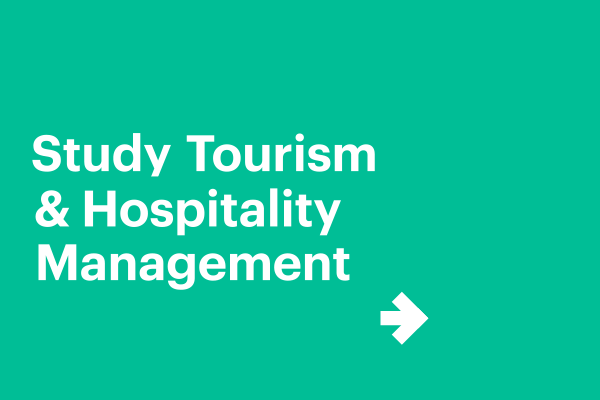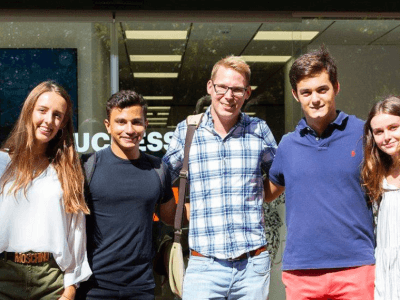Why Studying Tourism Management is More Important Than Ever
Of all the industries affected by COVID-19, tourism has been one of the worst impacted. Although lockdown measures varied – and continue to vary – between countries, countless flights were cancelled and resorts and hotels were forced to close around the world. Emergency measures were often introduced at short notice, meaning that the tourism industry had little to no time to prepare for what was coming. The result was that even the most determined travelers faced serious barriers to enjoying a vacation in 2020, which has in turn been catastrophic for those who depend on tourism to survive.
As some degree of normalcy returns, attention naturally moves to the gradual revival of the tourism industry. However, opinions vary on the best way forward. While there are undoubtedly those who wish to return to “business as usual” as quickly as possible, others believe that COVID-19 was an unwanted yet much-needed check to generally unsustainable travel behaviors. This interesting time of potential change for the industry presents those who choose to study tourism management with the unusual opportunity to redefine tourism for our modern times. Given the number of livelihoods dependent on the recovery of the travel industry, it’s arguably never been more important to study tourism management.
Rebuilding Economies on a New Foundation
The revival of the tourism industry will not be uniform. Instead, it will be shaped by each country’s reliance on income from tourists, or by the need to protect its economy and other industries by limiting the entrance of foreign visitors. The tourism industry will have to work with different types of government intervention in either scenario, and so those who have studied tourism management could take on an important role in navigating these new limits and opportunities.
Countries who depend on tourism for more than 10% of their gross domestic product have faced a dire economic situation in the wake of the pandemic. Many are islands which have consistently attracted tourists for the same reason that their economies are now suffering: they offer idyllic landscapes unspoiled by the bustle and pollution of other industrial activities. The vast majority of these countries belong to the developing world, where luxury resorts employ locals with a vastly different lifestyle to that of their customers. For people who live in these countries, the recovery of the tourist industry is fundamental to their survival. Those who study tourism will be uniquely placed to support much-needed economic development in these areas.
As a result of the risks and restrictions associated with COVID-19, there is set to be a huge focus on domestic tourism as a means to rebuild economies. While some countries – such as the USA and France – already have a thriving domestic tourism economy, this will be a new area of development for many. Those in the tourist industry will have to research, experiment and invest in order to attract new clients who would not have previously considered a vacation in their own home country; an academic background in tourism management will be invaluable during this process.


Changing Attitudes to Travel
Although hardened travelers may seem relatively undaunted by COVID-19, the pandemic is predicted to change the travel habits of many. At this early stage it’s difficult to predict what these changes might look like. However, it follows that certain demographics are more likely to pull back on international travel based on their increased vulnerability to the virus. Since COVID-19 resulted in job losses across a range of industries, it can also be deduced that the amount of disposable income people are able to dedicate to travel will be reduced in many cases. For different branches of travel and tourism to adequately respond to these changes in customer base and need, strong tourism management skills will be required. Which makes it an especially relevant field of study at the moment.
Some commentary has warned that the COVID-19 pandemic is a mere preview of the global panic the world will increasingly experience as a result of climate change. So it can be hoped that living through COVID-19 may act as a catalyst for previously disinterested parties to take action on environmental issues. Of course, unnecessary international travel was already heavily criticized by activists pre-pandemic, but it is likely this message will become more popular in its aftermath. If so, sustainable travel will become a site of renewed and energetic interest. Again, students of tourism management could make a huge difference – not just to the future of travel, but to the future of the planet.
The Ongoing Importance of Tourism
Despite current concerns, people all over the world continue to have a cultural curiosity that drives them to travel. It’s difficult to imagine a world in which this is not true, or in which our current level of globalization is reversed. It should be remembered that travel, although often considered a luxury for the few, has a positive impact beyond personal benefit. The travel and tourism industry ensures the ongoing promotion and preservation of cultural heritage, and supports the economic survival of otherwise under-resourced communities. Perhaps most importantly at a time of international crisis, it enables people of different backgrounds to develop a human solidarity that transcends borders.
In terms of scale and depth of impact, there are very few events in modern history that can be compared to this pandemic. Although affected to varying degrees, people around the world have been united to some extent by their shared experience of COVID-19. What is certain is that, when it’s safe to do so, they will want to connect. They will want to explore beyond the homes they’ve been confined to. What this will look like in a post-pandemic world depends greatly on the creativity and specialist knowledge of tourism professionals. That’s why it’s more important than ever to study tourism management.
Take Your Love of Travel to the Next Level at EU Business School
If you’d like to know more about working in this fascinating sector, EU Business School is the perfect place to learn how to disrupt the travel and tourism industry. You can study Leisure and Tourism Management as a bachelor’s or MBA in a fully international environment, allowing you to simultaneously build valuable cultural and communication soft skills by collaborating with fellow students from all over the world. These programs are available on our Barcelona, Geneva, Montreux, and Munich campuses.













